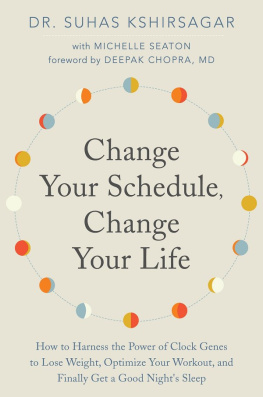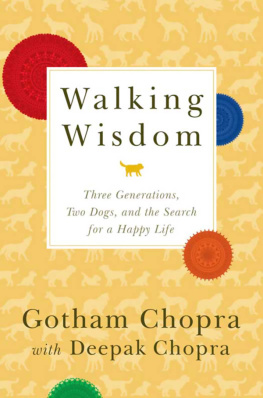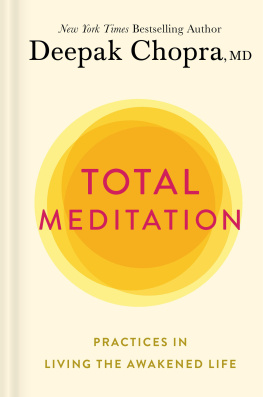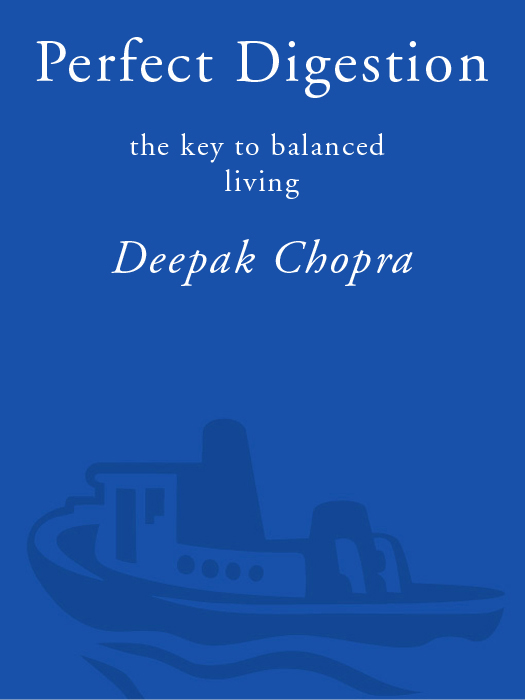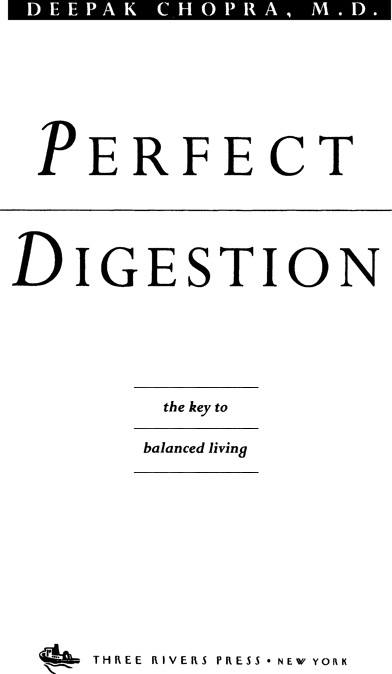
I NTRODUCTION
A s a physician, one supremely important truth has been brought home to me again and again: That the human body is a crowning achievement of nature, a gift bestowed upon each of us to appreciate and to care for throughout our lives. But enjoyment of this gift requires a certain degree of understandingan informed awareness of our bodies needs that is more crucial today than ever before.
Let me explain why this informed awareness is so important now. Among the many accomplishments of American civilization, none is more impressive than the fact that virtually no one in the United States is starving to death, which was not true in centuries past and is hardly the case even today in many parts of the world. Throughout much of history, human beings had little choice but to eat whatever they could find, hunt, or grow. This had many drawbacks, but it did cause the evolution of our remarkably flexible human digestive system, which is not only capable of processing a wide variety of foods but is actually best suited to doing so.
After tens of thousands of years, the parameters of human nutrition changed quite suddenly. At least in the United States, most of us no longer have to eat whatever we can get. On the contrary, we may eat whatever we wantbut what we seem most often to choose is an ever-narrowing range of foods that are mostly sweet, or high in fat content, or low in dietary fibers. Our digestive system, which evolved to deal with scarcity and variety, is now called upon to handle abundance and nutritional uniformity. In other words, although we have enough to eat today, were not really taking advantage of the foods available to us. Were eating too much of the wrong things, and were often doing it in such a rush that more stress than nutrition is delivered to our bodies and our cells. While Western society has largely solved the problems of making food available, we have yet to learn how to make the choices that are best for us. In terms of learning about the foods we eat and understanding how our bodies process them, we have yet to recognize our true needs.
Although the larger purpose of this book is to bring you a more enlightened interpretation and a more comprehensive understanding of your physiology as a whole, our explicit focus here is on the gastrointestinal tract. It certainly deserves our attention. According to Ayurveda, the traditional Indian science of health, most diseases originate as an imbalance in the digestive system. In the pages ahead we look at how the gastrointestinal tract is constructed, how it works when healthy, and how to restore health when ideal functioning has been lost through imbalance or disease.
Our discussion of the gastrointestinal (GI) tract will be concerned especially with the tracts lower end, which includes the intestines and the colon. Naturally, these are not topics that most people take up in casual conversation. Yet even as far back as the time of the ancient Greeks, when the philosopher Epicurus declared that sound digestion was the basis of all human goodness, people have recognized the importance of the gastrointestinal tract. Its interesting that Epicurus, who celebrated the pleasures of good digestion (and whose name brought us the term epicurean), also believed that poor digestion was so morally destructive that everything possible should be done to avoid it. He himself eventually converted to a diet of water and grain in order to minimize the risk of stomachache.
When functioning as it should, your GI tract converts food into energy and nutrition to build, repair, and sustain your bodya big job that continues every minute of every day throughout your lifetime. Over seventy years an average Americans digestive system will process about twenty-three thousand poundsnearly twelve tonsof solid food. When youre in a state of good health, food passes through the twenty-seven feet of digestive canals linking throat to rectum without any conscious effort on your part and without any significant discomfort. Yet comfort is by no means common to everyone. Studies show that as many as one in every three Americans experiences frequent and significant discomfort related to the lower intestinal tract. Indeed, during the course of any given day almost everyone has gastrointestinal symptoms of some kind, and studies indicate that at least 20 million Americans suffer from a well-defined constellation of symptoms known as Irritable Bowel Syndrome, or IBS.
IBS has had other names throughout the years: spastic colon, nervous stomach, mucous colitis, irritable colon, and many more. Although it is commonly referred to as chronic colitis, this is actually incorrect since the word colitis implies inflammation of the bowel, which does not exist in true IBS. The fact that Irritable Bowel Syndrome has so many names suggests that it is not really a disease at all, but a collection of signs and symptoms that have become commonplace in modern medicine. So commonplace, in fact, that more people present themselves in the offices of gastroenterologistsspecialists in the GI tractwith symptoms of IBS than with any other complaint.
In this book we will consider in detail such manifestations of IBS as constipation, diarrhea, and gas. Although not generally life-threatening, these can cause a great deal of discomfort, inconvenience, worry, and even great emotional turmoil. We will also look briefly at some of the more serious problems that can afflict the gastrointestinal tract. Severe conditions such as ulcerative colitis, Crohns disease, and diverticulitis are beyond our primary focus here, but familiarity with their early symptoms is vital in order to deal with them effectively.
1
T HE Q UANTUM M ECHANICS OF D IGESTION
F rom a holistic point of view, understanding any aspect of the human bodywhether its digestion and elimination or the way we process sights and soundsmust begin with a view of the body as a single integrated system in which all the parts are designed to function in a unified manner.
Although the gastrointestinal tract is itself a fascinating and marvelously complex apparatus, it is still only one aspect of the intricate and often bewildering entity that is our physical self. For this reason, I believe its appropriate to begin by offering you a new understanding of your body as a wholeone could even say a new vision of it. I believe that once youve viewed yourself from this new perspective, you will see yourself as you did before, but with an important foundation on which to build a program of truly perfect healththat is, a healthy GI tract and a healthy body overall.
The new perspective is derived from Ayurveda, so in a sense its not really a new perspective at all, because Ayurveda is the oldest health care system known to man. Remarkably, this ancient approach to understanding the body, which has been tested and proven over thousands of years, is also completely compatible with our contemporary understanding of how nature works. In fact, Ayurveda simply uses a different terminology to express some of the most advanced ideas of molecular biology and quantum physics.



